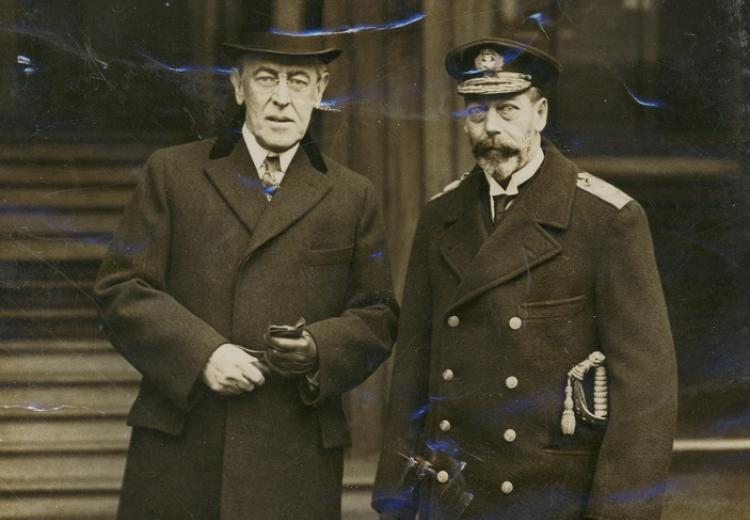Lesson 1: The Origins of "Wilsonianism"

President Wilson and King George V of England, outside of Buckingham Palace. December 1918.
The influence of President Woodrow Wilson on American foreign policy has been profound and lasting. Just before his inauguration, however, Wilson remarked, "[i]t would be the irony of fate if my administration had to deal chiefly with foreign affairs." How did this former professor and Progressive reformer become the architect of an ambitious foreign policy for the United States? Using a variety of primary sources, this lesson analyzes the sources of the foreign policy that came to be known as Wilsonianism and guides students to compare it with important traditions in American foreign policy.
Guiding Questions
To what extent did Wilson forever change American foreign policy?
Learning Objectives
Determine how Wilson's academic career and Progressivism shaped his ideas about foreign policy.
Compare the four major points of "Wilsonianism" with previous foreign policy values maintained by U.S. Presidents.
Evaluate the short and long term changes that came as a result of Wilson's foreign policy decisions.
